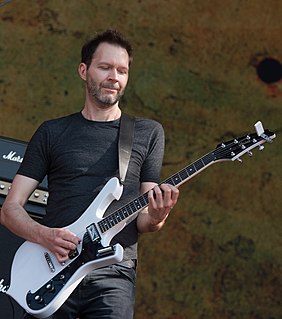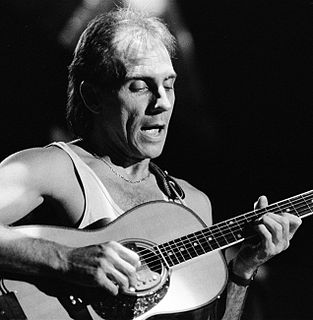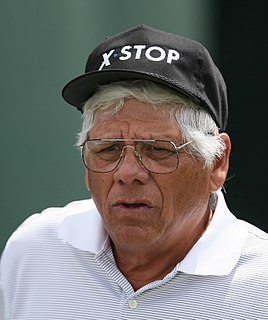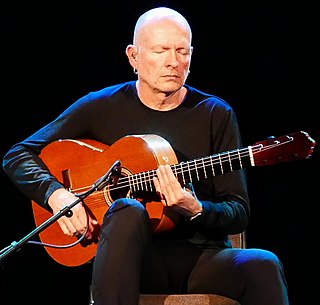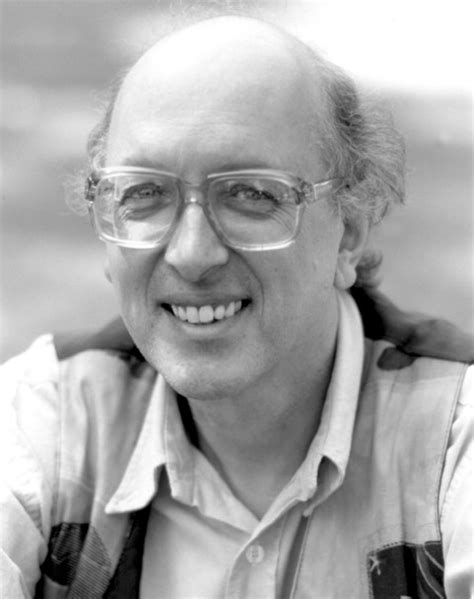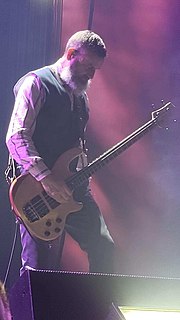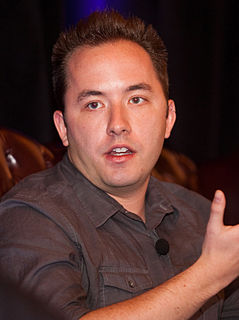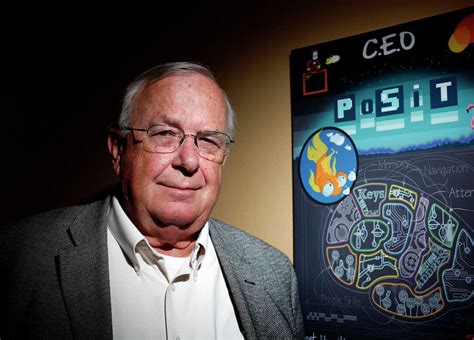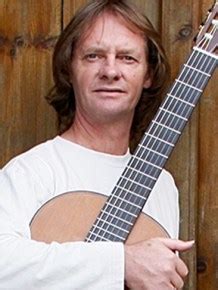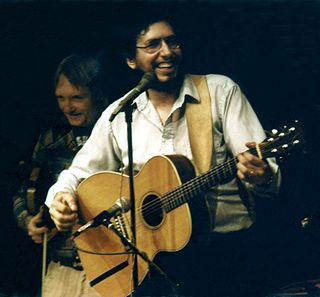A Quote by Paul Gilbert
Of course, I'm a guitar player, so I'm thinking as a guitarist. I have to work within my physical limitations as to what my hands will do, and also the patterns I'm familiar with, and the places that my fingers are used to going.
Related Quotes
There are only patterns, patterns on top of patterns, patterns that affect other patterns. Patterns hidden by patterns. Patterns within patterns. If you watch close, history does nothing but repeat itself. What we call chaos is just patterns we haven't recognized. What we call random is just patterns we can't decipher. what we can't understand we call nonsense. What we can't read we call gibberish. There is no free will. There are no variables.
[Jack Nicklaus] was the first to bring in course management. He could go to a course and tell you within one stroke what was going to win. He used to set his sights on that because he could shoot it. He was the only player I know who, if he decided he wanted to win a tournament, could go out and do it. No one will ever be as popular as Arnold Palmer and no one will ever come close to Jack as a player.
When I came to the States, I still wanted to be an electric guitar player. But moved to Santa Fe in '86. And just decided that nylon string guitar is really what I wanted to do... And that really change my life totally as well... And Santa Fe is one of those really unusual places that is such an interesting mix of culture. There is a lot of from restaurants to music... I remember one of the first groups I saw playing there in the back of a restaurant, was a banjo player, a classical violinist, and a flamenco guitarist. And I thought to myself, "What? You know, this is great."
It is as if the formation of patterns within the unconscious mind is accompanied by physical patterns in the outer world. In particular, as psychic patterns are on the point of reaching consciousness, the synchronicities reach their peak; moreover, they generally disappear as the individual becomes consciously aware of a new alignment of forces within his or her own personality...It is as if the internal restructuring produces external resonance, or as if a burst of 'mental energy' is propagated outward onto the world.
The patterns of activity of neurons in sensory areas can be altered by patterns of attention. Experience coupled with attention leads to physical changes in the structure and future functioning of the nervous system. This leaves us with a clear physiological fact…moment by moment we choose and sculpt how our ever-changing minds will work. We choose who we will be in the next moment in a very real sense, and these choices are left embossed in physical form in our material selves.
Your hands are like dogs, going to the same places they've been. You have to be careful when playing is no longer in the mind but in the fingers, going to happy places. You have to break them of their habits or you don't explore; you only play what is confident and pleasing. I'm learning to break those habits by playing instruments I know absolutely nothing about, like a bassoon or a waterphone.
